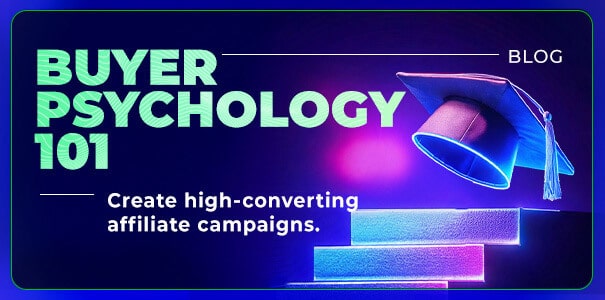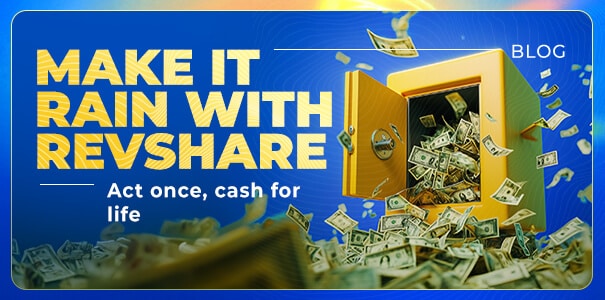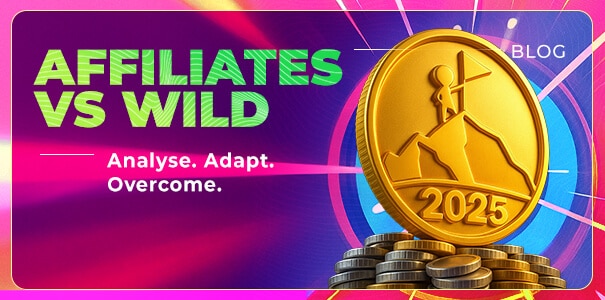Welcome to our Buyer Psychology 101 class! Today, we’ll discuss how affiliate marketing can influence consumer decisions. What makes a buyer click a link, sign up for a service, or purchase?
You’ll soon be able to understand the psychology behind these actions! This knowledge will surely help you improve your campaigns. Get ready to leverage emotional triggers and behavioral insights!
Understanding the psychology behind these actions can significantly enhance your affiliate marketing campaigns.
The Role of Psychology in Adult Affiliate Marketing
Like other affiliate niches, adult affiliate marketing heavily relies on consumer actions. Whether clicking a video, signing up for exclusive content, or purchasing premium services, success hinges on understanding why users act.
Why Psychology Matters
Psychology offers insights into the decision-making process. There are two major key points to remember at this point:
- Emotions drive decisions: Consumers often rely on feelings rather than logic.
- Cognitive biases shape behavior: Mental shortcuts, like FOMO or the bandwagon effect, influence user actions.
Affiliate marketers can craft compelling campaigns that resonate emotionally and cognitively with their audience by understanding these factors.
Key Psychological Principles in Adult Affiliate Marketing
In adult marketing, emotions like curiosity, desire, and exclusivity play an even stronger role. Campaigns often hinge on offering a sense of forbidden access or intimacy. For instance:
- The promise of unlocking "exclusive content" appeals to a sense of privilege.
- Curiosity-driven language, such as "What’s behind the paywall?" prompts clicks and sign-ups.
Recognizing these dynamics can help affiliate marketers fine-tune their messaging and create more targeted campaigns.
How to Use Buyer Psychology in Your Affiliate Marketing Strategies
Psychological principles can be powerful tools in affiliate marketing. Below are some key tactics:
Fear of Missing Out (FOMO)
FOMO taps into the fear of losing opportunities. This psychological trigger creates urgency, prompting immediate action. It can be represented by countdown timers or catchy sentences like “This video will expire in 24 hours!” or something like that:

Why It Works:
Scarcity and time-sensitive messaging heighten perceived value, motivating users to act before it’s too late.
Social Proof
Humans are social creatures who tend to follow the crowd. Social proof leverages this instinct, reassuring consumers of others’ choices. You can post customer testimonials and reviews so people trust you.
But today, people sometimes trust influencers even more than their friends, so you could get some influencers to endorse your product. And if you want something easier, you can always use star ratings and statistics!

Why It Works:
When potential buyers see others using or endorsing a product, it builds trust and confidence. Adding real-time statistics, such as “500 people are watching right now,” can further enhance this effect.
Trust and Authority
Consumers gravitate toward trusted sources. If your campaigns exude authority or align with credible influencers, they’ll be more persuasive. As said earlier, you know that a well-known influencer endorsing a product or service will be heard 2 times more!
Expert reviews can surely be a great addition, too. In the adult industry, you can get some relatable creators to share their genuine experiences. Lastly, you can display certifications or awards on your website!

Why It Works:
Trust and relatability make recommendations more believable, increasing the likelihood of conversions. Affiliates can partner with influencers who resonate with their target audience to amplify this effect.
Desire for Belonging
Affiliate marketers can appeal to the universal need for connection and belonging. Community-driven campaigns foster emotional connections and loyalty. There are a few ways to reach that! Of course, relatable storytelling that speaks to shared experiences is a must.
You can also create forums or groups where users can interact. Sometimes, a simple, catchy sentence can help you, too:

Why It Works:
Creating a sense of belonging makes consumers feel valued, increasing their attachment to your brand or product. Subscription models that offer “VIP access” often effectively leverage this principle.
Curiosity and Intrigue
Humans are naturally curious, and this trait can be a powerful motivator. Headlines and hooks that tease content or offer “insider knowledge” can boost click-through rates. Because sometimes, even when you’re not interested in a subject, you want to learn “what they don’t want you to know…” or

Why It Works:
Curiosity creates an information gap that people feel compelled to close by taking action.
Challenges in Applying Consumer Psychology
While psychological principles are powerful, misusing them can backfire. Here are common pitfalls to avoid:
Overusing Emotional Triggers
Excessive urgency or false scarcity can erode trust. For example:
- Constant “limited-time offers” might desensitize users.
- Misleading claims can lead to customer backlash.
Balancing emotional triggers with authenticity ensures your campaigns remain credible.
Privacy Concerns
Data must be collected to understand consumer behavior and align with privacy regulations. Ethical data practices build long-term trust.
Tips for Compliance:
- Be transparent about data collection.
- Offer users control over their data.
- Follow GDPR or CCPA guidelines when applicable.
Balancing Triggers with Value
Over-reliance on psychological tactics can overshadow the genuine value of your product or service. Effective campaigns strike a balance between emotional appeal and substantive offerings.
Examples of Balanced Messaging:
- Highlight product features alongside emotional appeals.
- Combine urgency with tangible benefits (“Sign up today and save 20%”).
Advanced Strategies for Applying Psychology in Affiliate Marketing
Personalization
Tailored messages resonate more deeply with users. Use behavioral data to customize your campaigns.
Examples:
- Personalized email subject lines (“Hi [Name], Don’t Miss This Offer”).
- Retargeting ads based on past user behavior.
Multi-Sensory Engagement
Appealing to multiple senses can create a more immersive experience.
Examples:
- High-quality visuals and videos.
- Engaging audio content like podcasts or voiceovers.
Gamification
Incorporating game-like elements can boost engagement and motivation.
Examples:
- Progress bars for completing actions.
- Reward systems (“Earn points for every purchase”).
Here are some facts: Affiliate marketers can leverage emotional triggers and behavioral insights to create strategies that drive engagement, increase conversions, and maximize ROI.
Understanding and leveraging buyer psychology can transform your affiliate marketing campaigns. By tapping into emotional triggers like FOMO, social proof, trust, and belonging, you can create engaging, high-performing strategies.
Ready to boost your affiliate ROI? Start applying these psychological principles today!



